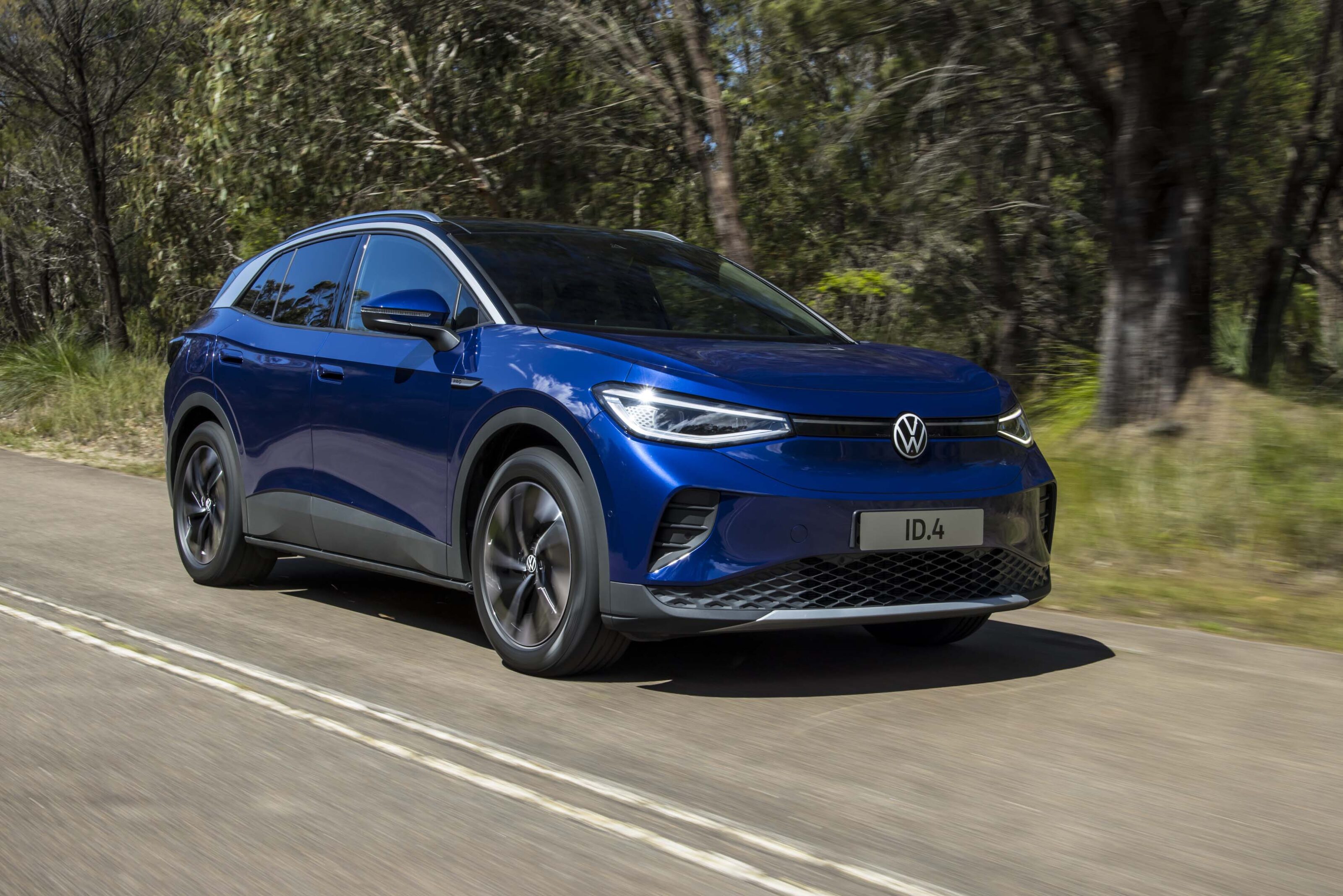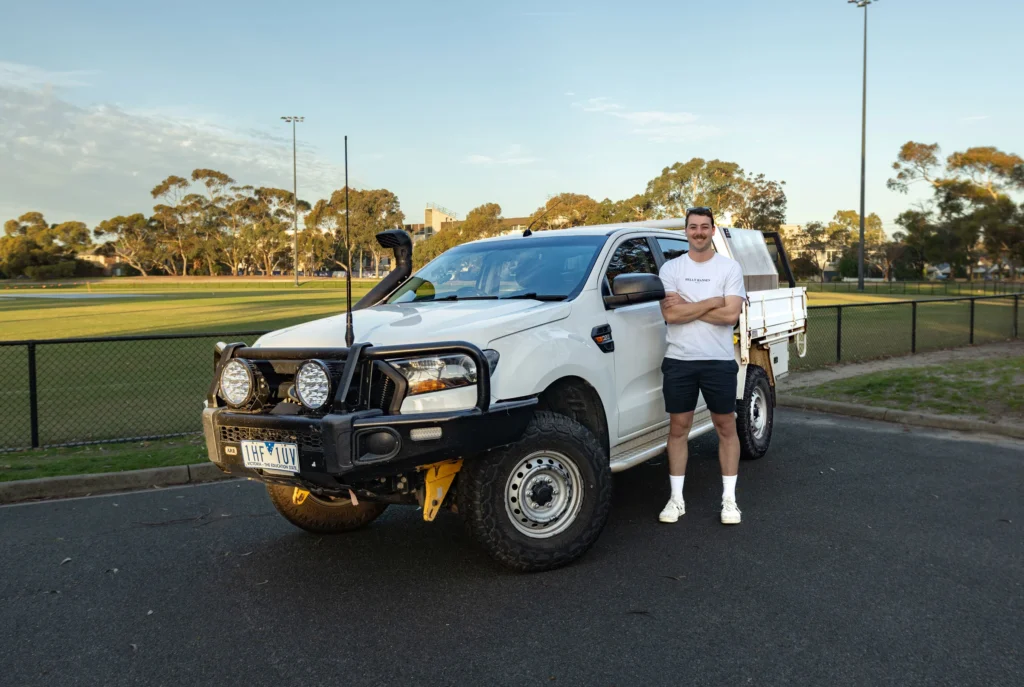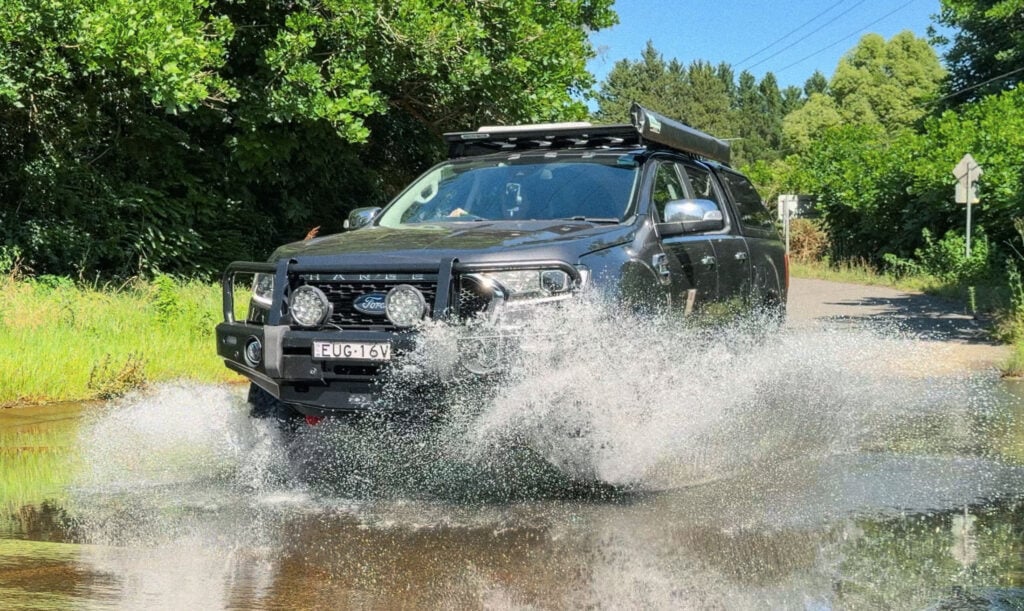Score breakdown
Things we like
- Smooth power delivery
- Spacious interior
- Straightforward technology
Not so much
- No sliding rear bench
- Cheap cabin materials
- Doesn’t move the game on
UPDATE, March 29 2023: Australian timing confirmed for ID models
Volkswagen Australia has today confirmed local launch timing for its ID.3, ID.4, ID.5 and ID.Buzz models – get all the details at the links below.
Story continues…
ID.4 review: Australian preview drive
Volkswagen has made a big song and dance about electric vehicles being the future, pushing for government mandates and infrastructure spending in Australia.
And yet, the brand – as of right now – doesn’t sell an EV in this country. In fact, Volkswagen doesn’t even sell any kind of hybrid here. So, what gives?
It all comes down to how Volkswagen global sees the Australian market, and the sales figures don’t lie. Month after month, it’s utes that belch out 200-plus grams of CO2 per kilometre taking top spot, but that is starting to change.
Tesla is seeing cracking success with its mid-size Model 3 sedan and Model Y medium SUV, and other challenger brands like Polestar are getting in on the action while Volvo reckons it can increase sales by going EV-only sooner in Australia.
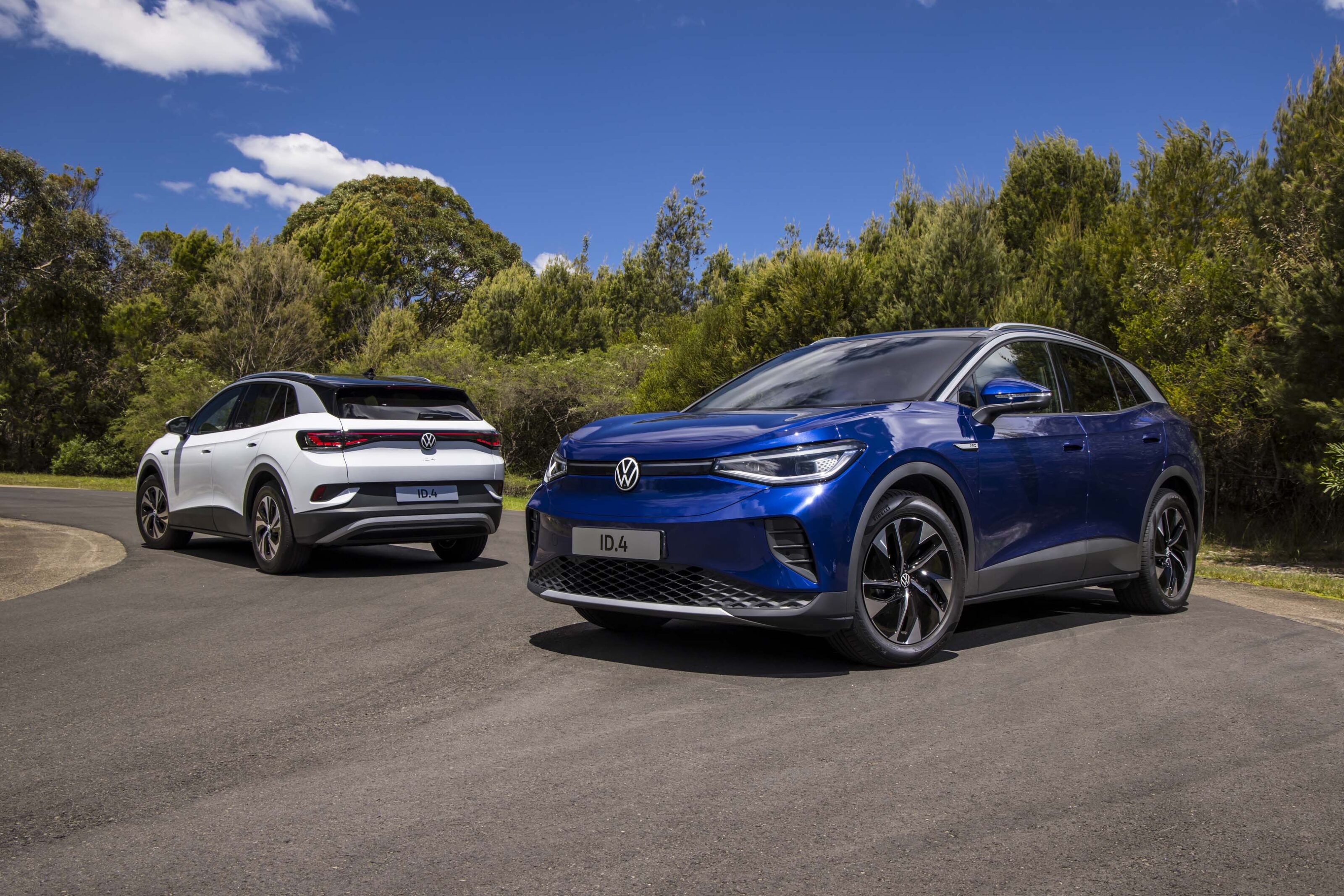
There’s also a change on the way for the Australian vehicle landscape as we move towards our first federal EV strategy, on which Volkswagen has been asked to give comment.
The 2023 ID.4 electric mid-size SUV will be the first of Volkswagen’s MEB-based vehicles to hit our shores (though not the first Group product, with the Cupra Born due sooner), followed by the ID.3 after its 2024 facelift, and latterly the ID.Buzz van.
With that in mind, the brand organised a day for Wheels to come and test out two variants of ID.4: a top UK-spec Pro Performance, and a lower-end Pure Performance variant. Unfortunately with Australia’s bureaucratic madness, we journos aren’t allowed to drive pre-production cars on the road, so were instead invited to a private test track that simulates an Aussie country road as best you can.
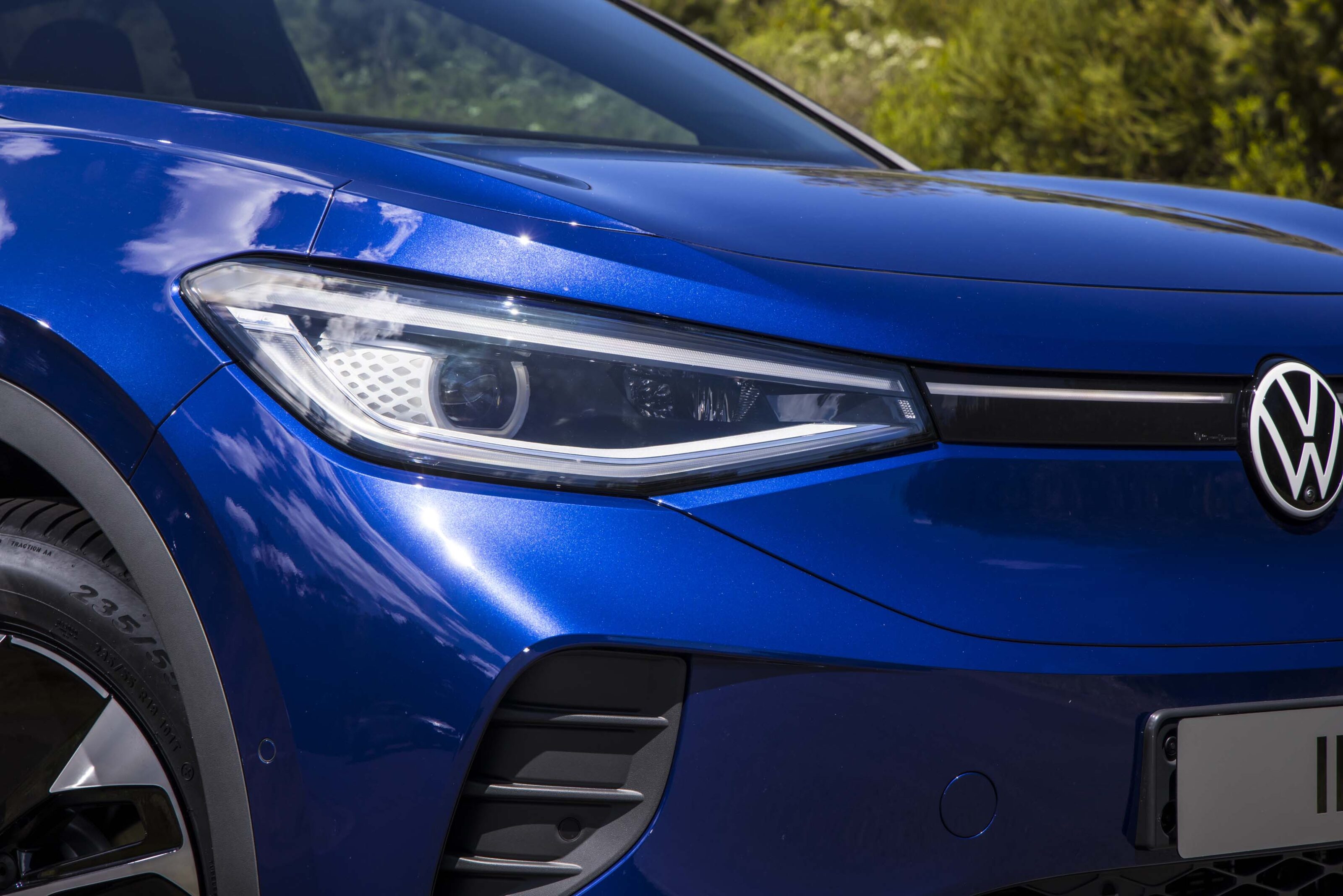
Volkswagen ID.4: The basics
| Feature | ID.4 Pure Performance | ID.4 Pro Performance |
|---|---|---|
| Motors (R) | Single asynchronous motor | Single asynchronous motor |
| Power | 125kW | 150kW |
| Torque | 310Nm | 310Nm |
| 0-100km/h (claimed) | 9.0 seconds | 8.5 seconds |
| Gearbox | Single-speed reduction gear | Single-speed reduction gear |
| Body | Steel, 5 doors, 5 seats | Steel, 5 doors, 5 seats |
| Battery size (usable) | 52kWh | 77kWh |
| Range (WLTP combined) | 345km | 522km |
| Efficiency | 16.7kWh/100km | 17.2kWh/100km |
| Boot space | 543L | 543L |
JUMP AHEAD
- How much is it, and what do you get?
- Interior comfort, space and storage
- What is it like to drive?
- How much driving range does the ID.4 have?
- How safe is it?
- Warranty and running costs
- VERDICT
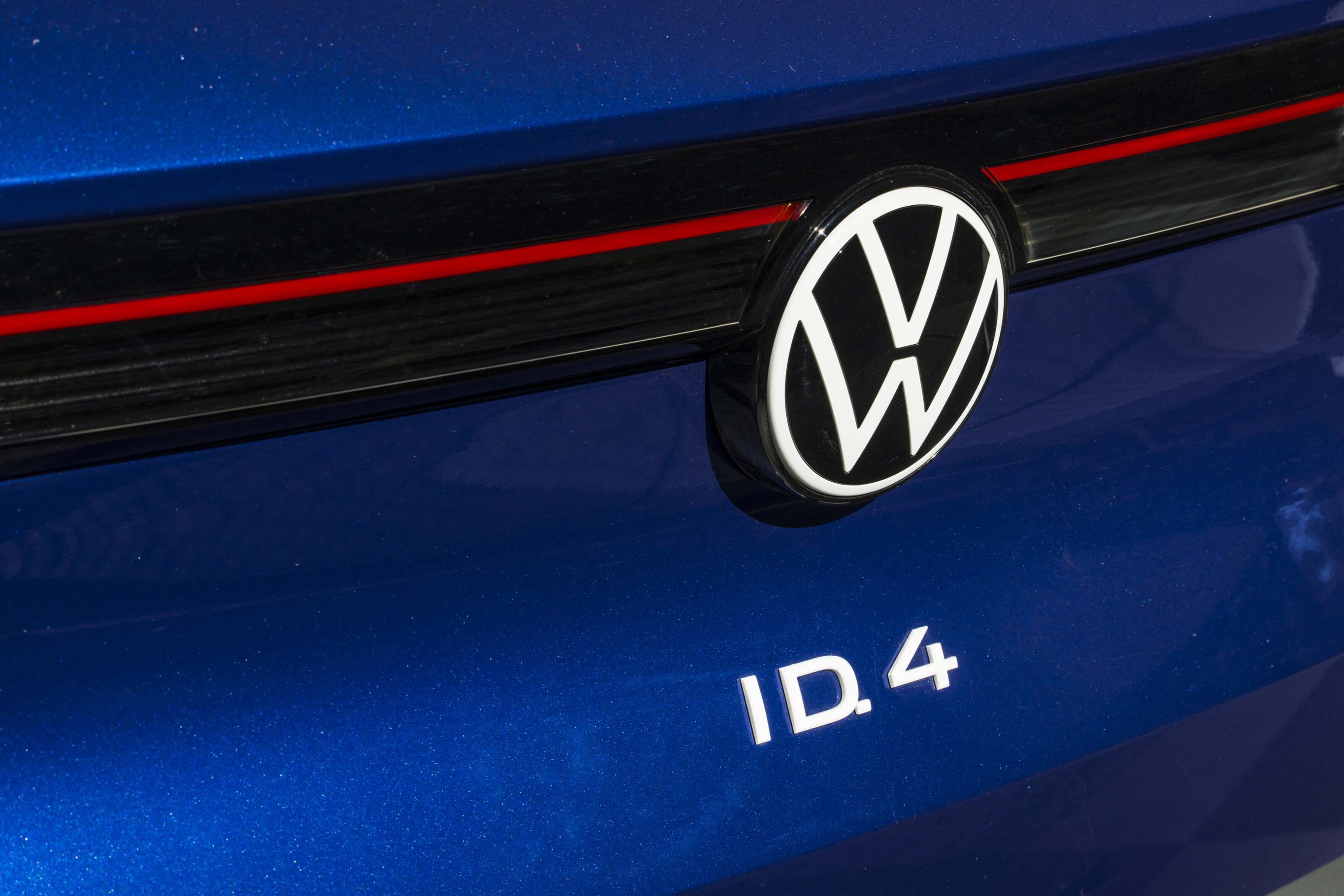
How much is it, and what do you get?
Because the ID.4 won’t be released in Australia until late 2023, pricing and specification are not finalised. VW’s local outfit has said (somewhat cryptically) that it will be targeting the price of a Tiguan 162TSI R-Line for its up-spec ID.4 model.
That car currently lists for $56,990 before on-road costs. If the ID.4 is that cheap, it’ll undercut almost all its rivals, including the Tesla Model Y, Hyundai Ioniq 5 and Kia EV6. Hell, it’d even give the doddery Nissan Leaf a run for its money.
But this all hinges on the Tiguan not being subjected to sneaky price rises along the way.
Still, for a high-spec mid-size SUV with a 12.0-inch touchscreen, power-adjustable Ergocomfort seats, tri-zone climate control, wireless Apple CarPlay and digital driver’s display, that’s pretty solid.
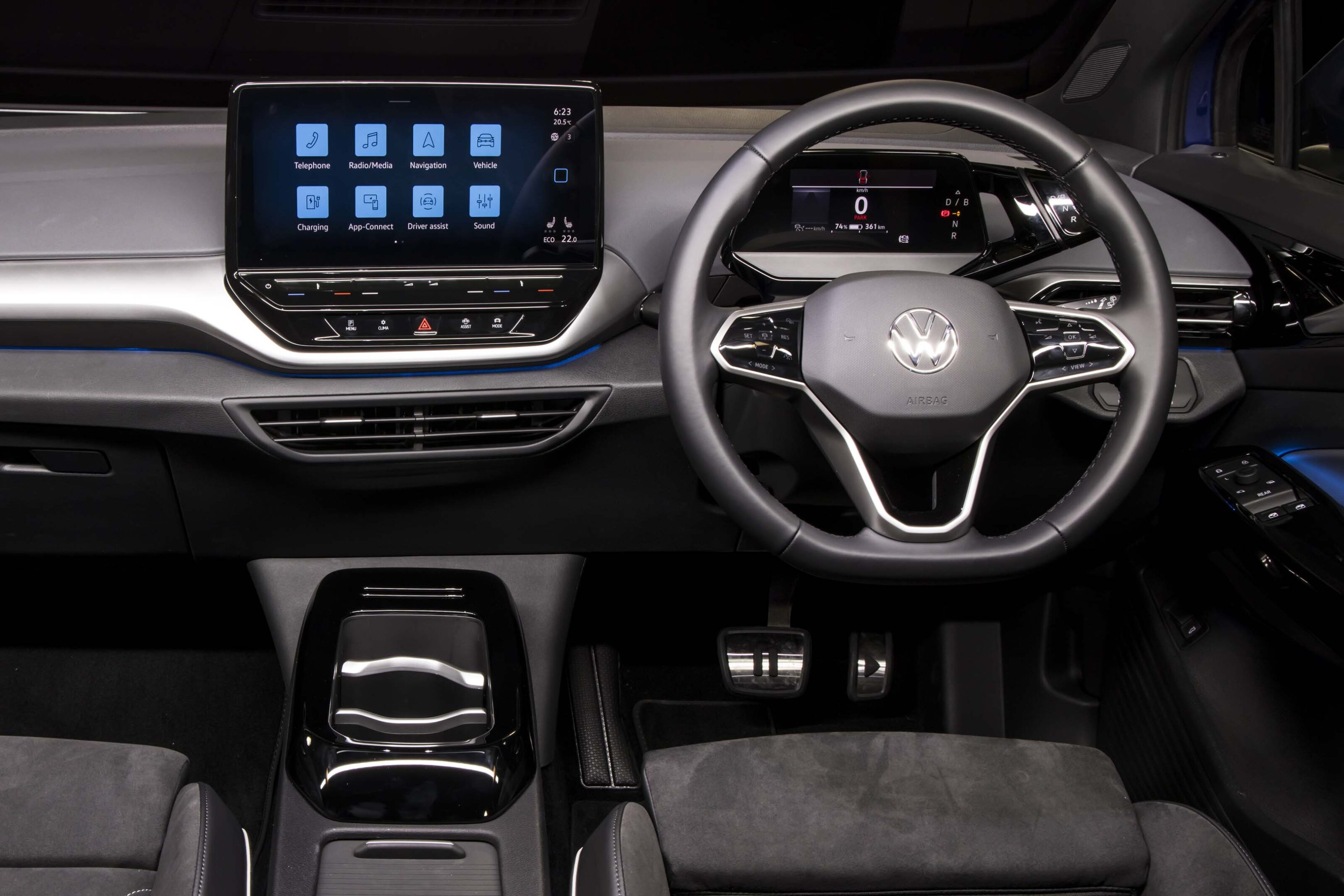
It’s a shame, then, that the new ID Display attached to the steering column is far less interactive that the brand’s 10.25-inch digital display in its petrol and diesel cars. There’s no provision to show a map and the graphics are low resolution. It will interface with Apple Maps for turn-by-turn directions, but unfortunately not Google Maps or Waze.
The ID.4’s EV credentials are strong, though. A 522km driving range on the WLTP combined cycle is claimed for its 75kWh battery pack and there’s 125kW DC fast charging.
Overall, the deal sounds pretty sharp even if the price does creep up to around the $65K mark by the time ID.4 arrives.
There is a cheaper ID.4 option, too. VW wasn’t suggesting prices for the Pure Performance with its smaller 52kWh battery pack and 345km driving range (WLTP), though it’s likely to be targeted at fleets such as local councils and potentially the police.
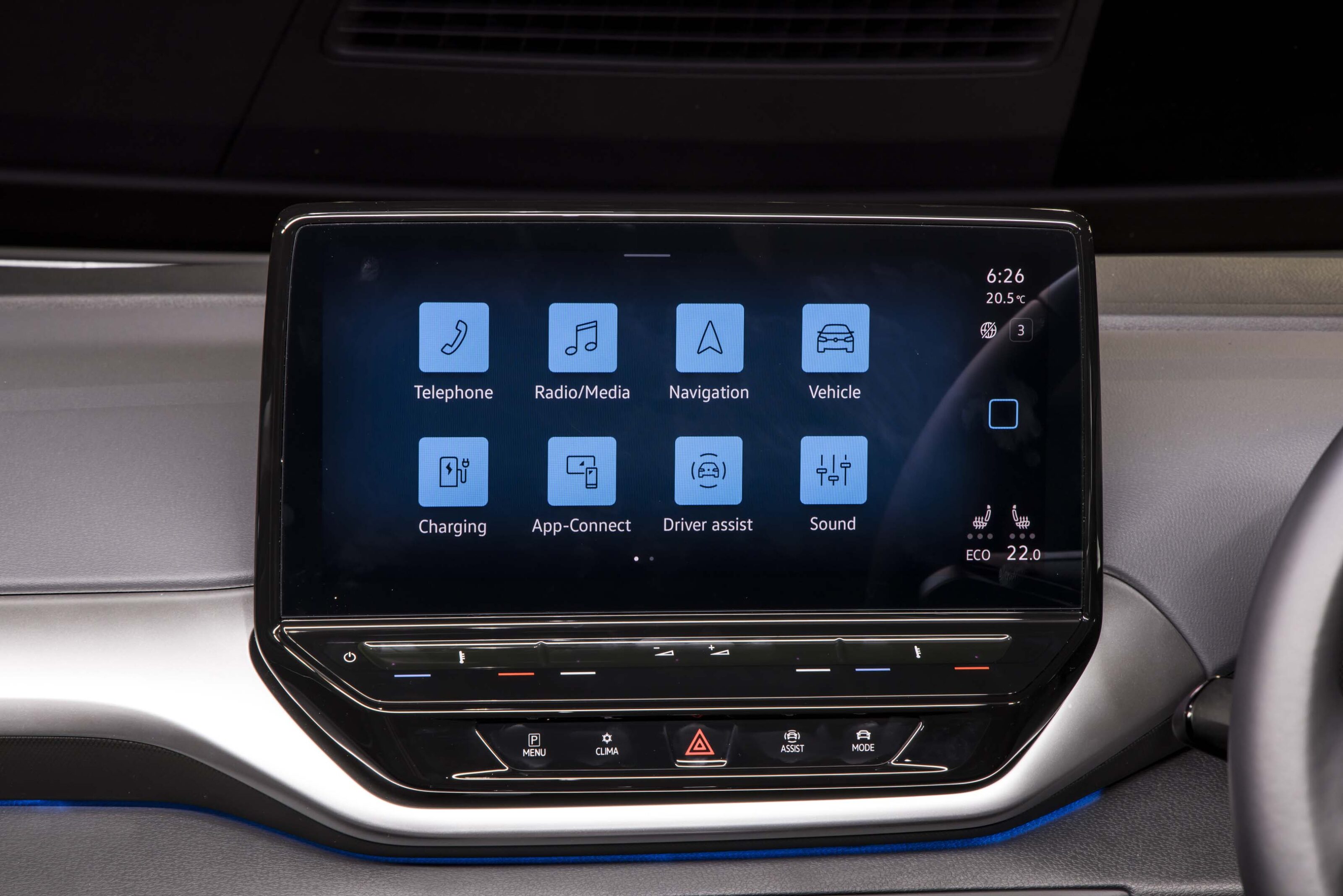
Interior comfort, space and storage
We only spent a brief two hours in total learning about and poring over the ID.4, so we’ll save our final verdict until its Australian release. There will be changes, such as interior trim pieces, materials, and potential software tweaks to come, but these cars are largely indicative of what will be sold in Australia.
The base Pure Performance gets a 10.0-inch touchscreen and quite comfortable (manually adjustable) front seats with cloth upholstery.
Moving up to the Pro Performance nets suedecloth upholstery and power-adjust Ergocomfort seats with three-stage heating. There have been comments about the ID range’s interior plastics, and honestly, they’re pretty accurate. The ID.4 doesn’t have that same premium material feel as you get in a Tiguan or even the Golf small car. Build quality isn’t too flimsy, though.
There are some interesting features to cover, including the BMW-i3-copy gear selector and the fact there are only two window switches for all four windows. I get this saves on material, and may open up a little more storage, but it does feel like innovation for innovation’s sake, rather than a value-add.
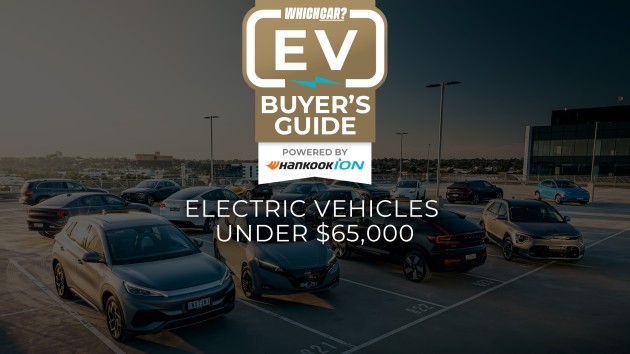
Best Electric Cars Under $65k: Affordable EVs Rated
Welcome to part one of three price-based EV buying guides, this one focused on the most affordable electric cars available in Australia today
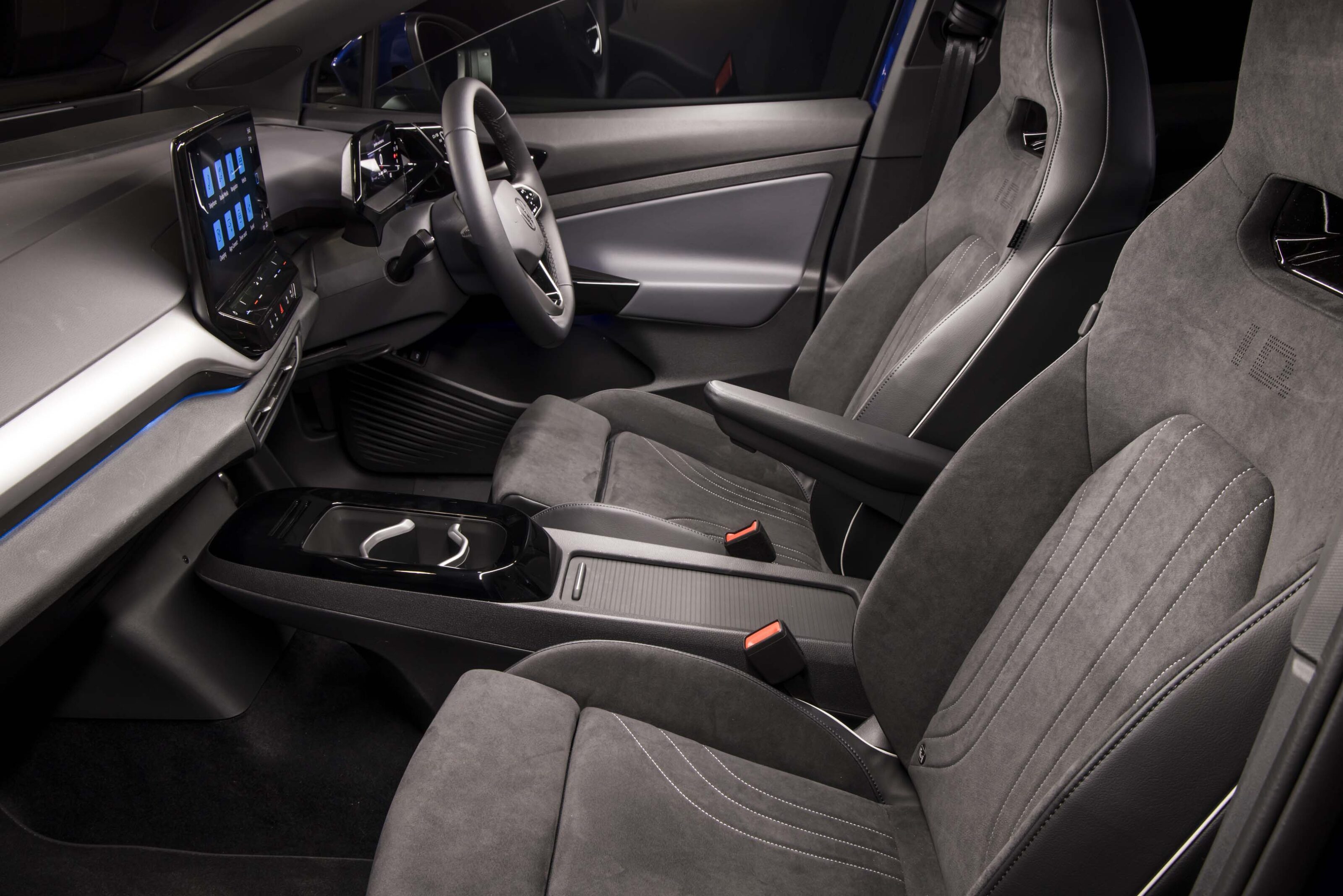
Still, the technology package is shaping up nicely. The touchscreen does take some time to boot up from a start – plus, being UK-spec, our test cars didn’t have 4G connectivity to run the connected services – but the software is quite handsome.
Interacting with the car’s features is done almost exclusively via the touchscreen, too. There are shortcut buttons built into the screen bezel for drive modes, climate control and parking settings, but it’s a very touch-heavy ecosystem.
The ID.4’s 4584mm length and 2771mm wheelbase make for a roomy ride in the back seats. There’s loads of knee room and decent headroom, though the high floor does make for compact toe space.
Sadly, there’s no sliding bench as you’d find in a Tiguan, which means the ID.4 isn’t quite as customisable or ultimately as well-packaged as the brand’s equivalent internal combustion mid-size SUV. Still, a 543L boot is nothing to sniff at in this class. There’s additional storage under the false floor for the supplied Mode 2 (home) and Mode 3 (public) charging cables.
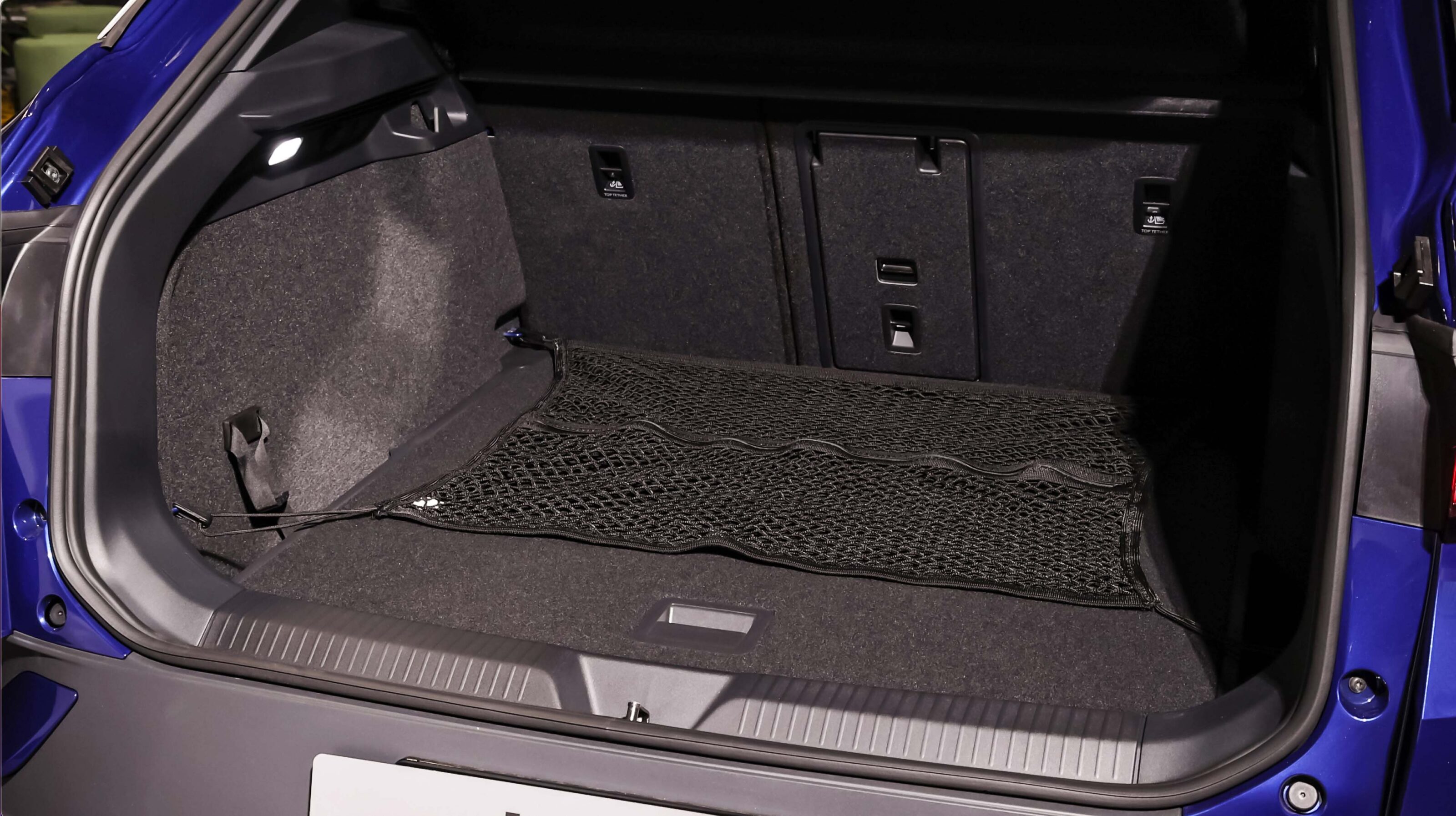
What is it like to drive?
Alright, here’s what you really want to know. Is Volkswagen’s EV any good? Well, unfortunately, the nature of a closed road course makes it hard to get a proper, well-rounded view of a vehicle like this. But still, we’ll give it a crack.
One thing’s for sure, you can tell the ID.4 is rear-wheel drive. On power, there’s a distinct feeling that drive is being sent rearwards, and it’s fairly talented. The steering is classic Volkswagen, and the Pro performance gets a progressive rack like you’d see in a Golf R Line.
Aside from its rear-driven feel, the ID.4 is quite benign and unremarkable, and in this case, that’s a positive thing. The ride quality seemed fairly agreeable, though the track was definitely smoother than your average Aussie road with no speed humps to worry about.
It really is an easy car to grow accustomed to, partly because the regenerative braking program is low on strength. There’s no selectable one-pedal mode, just ‘D’ and ‘B’ on the twist-shifter, and neither fully stops the car. The brake feel is fairly normal and confidence-inspiring too, which is good.
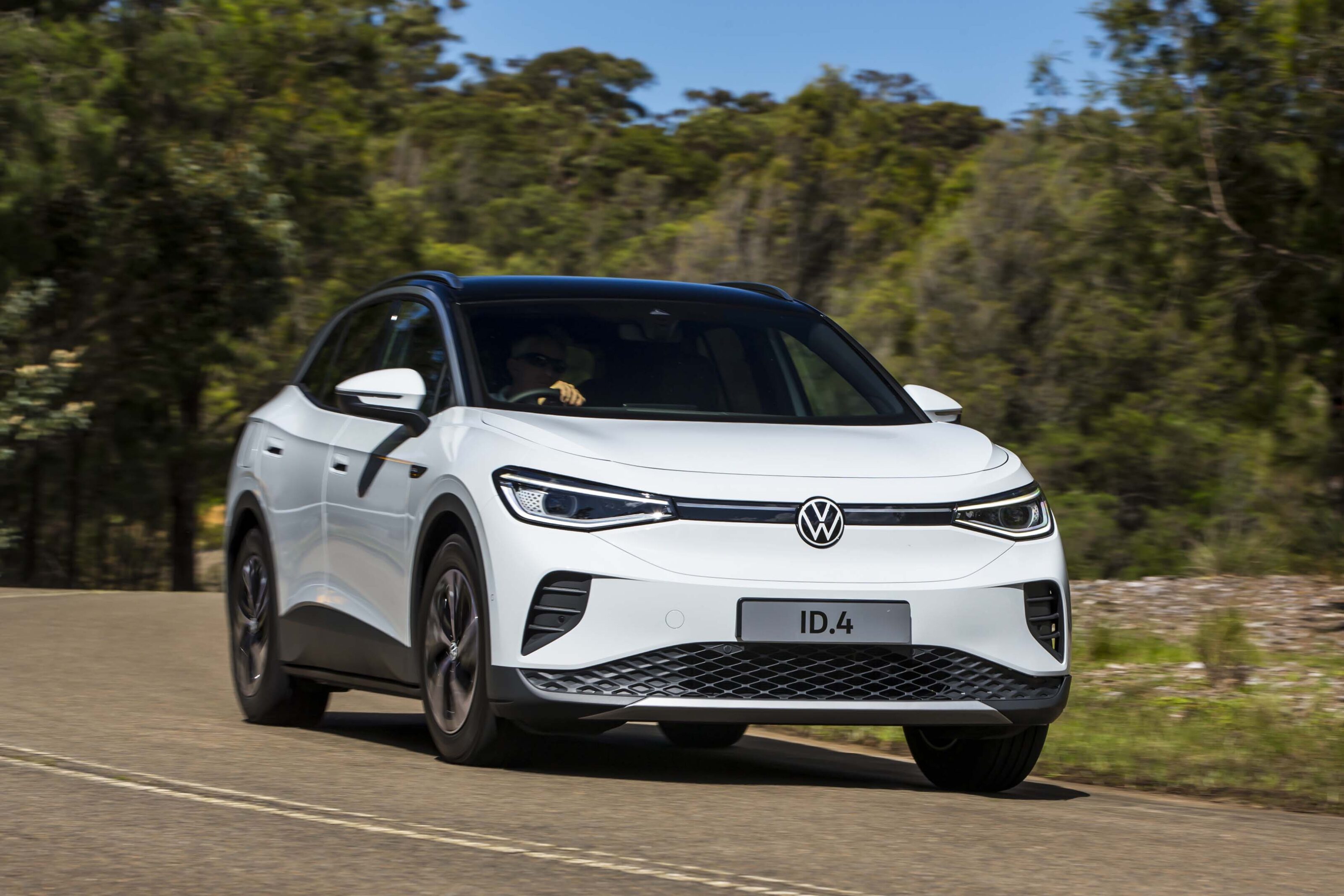
As for its power delivery, the 2124kg ID.4 isn’t what you’d call rapid, though it’s able to hit 100km/h in a respectable 8.5 seconds and on to a top speed of 160km/h with its single-speed reduction gear. It seems like Volkswagen has throttled back the maximum punch available from a standstill to create a smoother experience in the ID.4.
Cabin isolation is also respectable. The ID.4 isn’t too boomy, but there was some resonance you could hear over the few bumps on the test track.
We also drove the Pure Performance that sat on 19-inch alloys but with narrower 235/55R19 (rather than 255/50R19) rear tyres that had more of an eco-lean than the Pro Performance’s Pirelli rubber.
Volkswagen is also looking to bring the GTX versions of the ID.4 (and coupe-styled ID.5) to Australia in the future, but plans are yet to be confirmed.
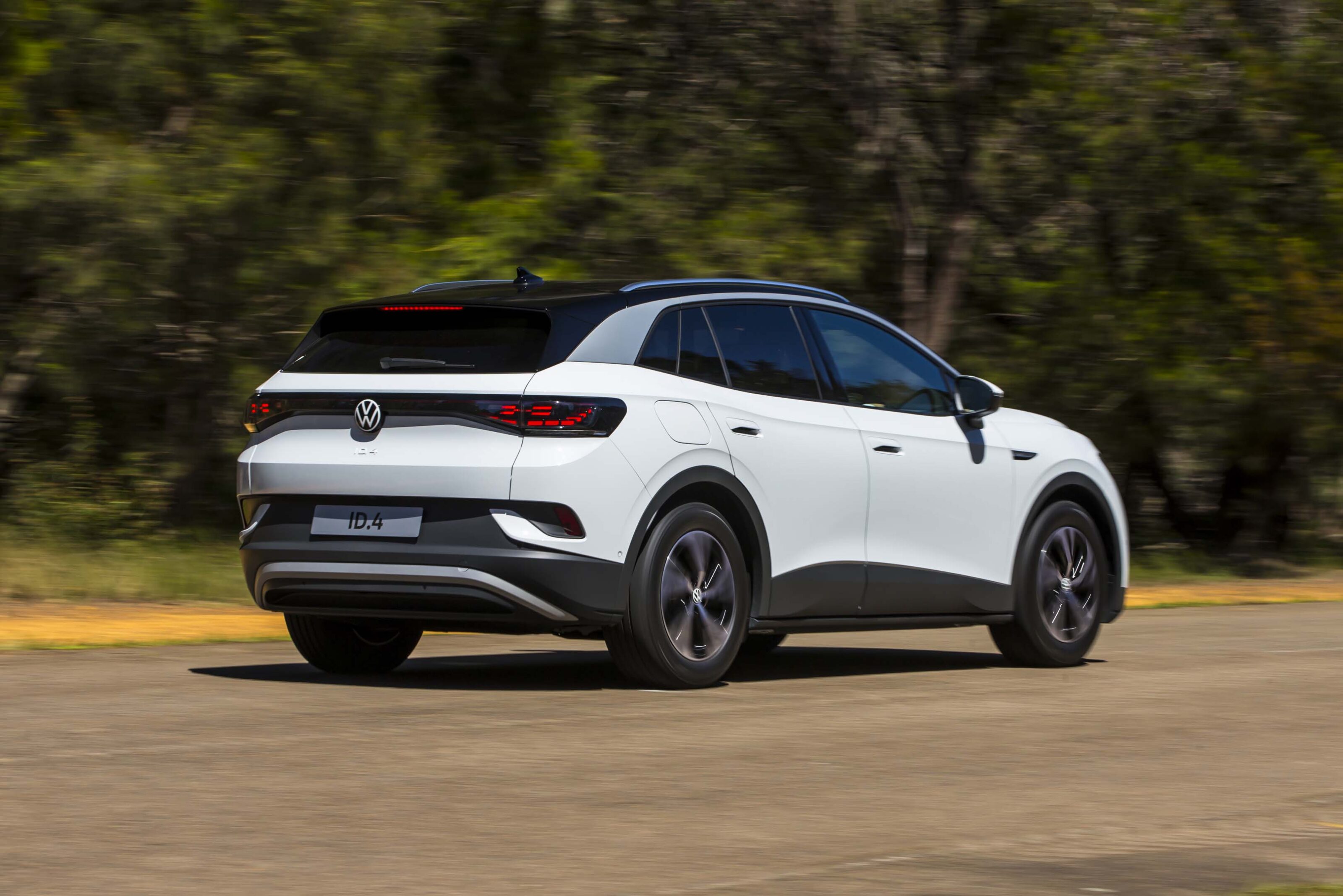
How much driving range does the ID.4 have?
The 2023 Volkswagen ID.4 Pro Performance has a 522km driving range on the combined WLTP test from a 77kWh lithium-ion battery, which equates to an efficiency of 17.2kWh/100km.
Volkswagen’s test loop wasn’t a realistic representation of driving conditions, so the efficiency numbers we got are unlikely to be of use. We’ll have a full test next year to challenge VW’s range claim.
The more powerful ID.4 Pro Performance is capable of DC fast-charging at 125kW, giving a theoretical 0-80 per cent charge (or 0-418km range) time of 33 minutes. A full DC charge will take 42 minutes, or using a three-phase 11kW wallbox will take around eight hours.
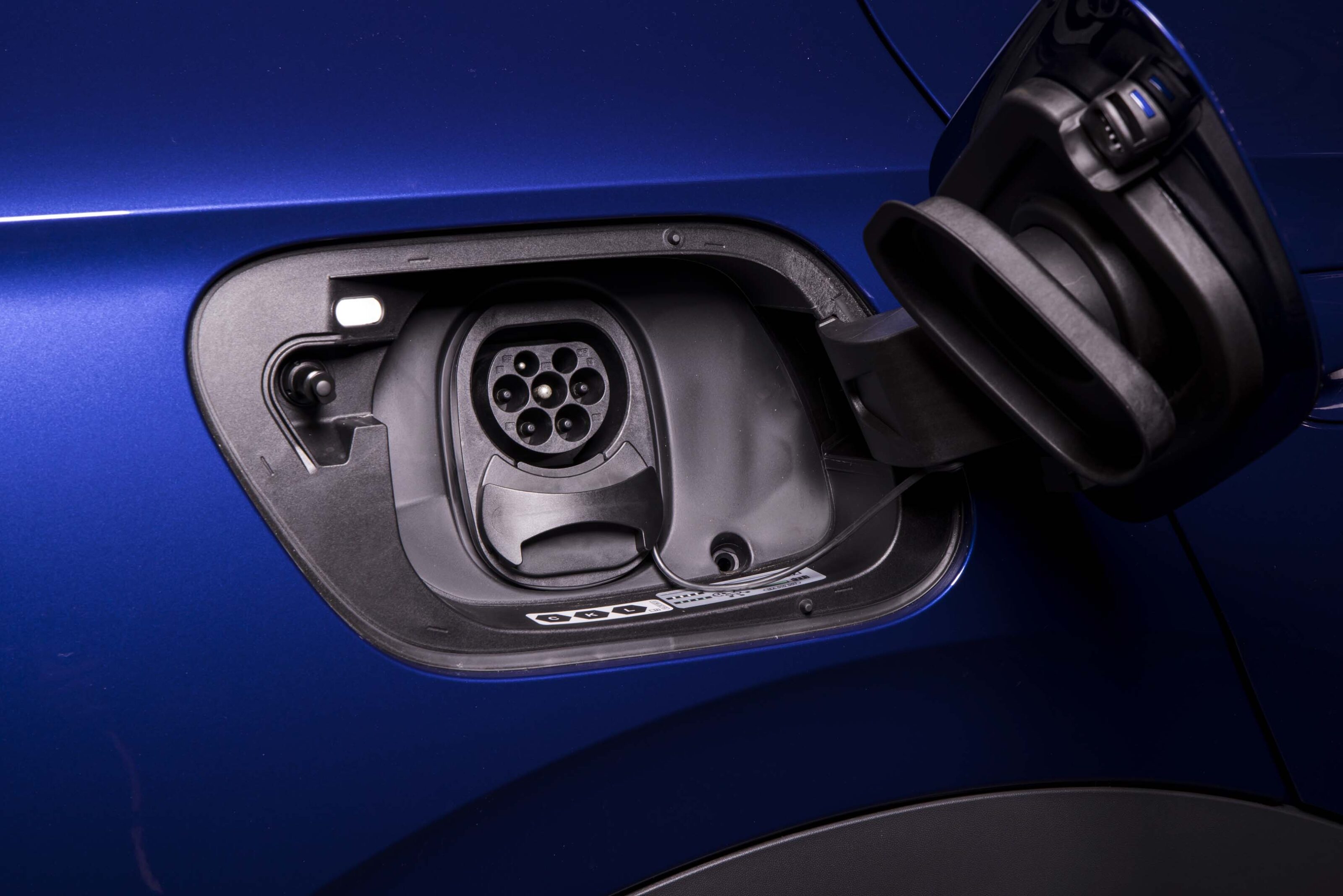
Also on test was the smaller battery (52kWh) Pure Performance with 345km driving range as rated on the combined WLTP cycle. It takes DC fast charging at 110kW for a 0-80 per cent time of 26 minutes, or 0-100 per cent in eight hours using a 7.2kW single-phase wallbox.
VW has chosen Jet Charge as its charging partner, but the ID.4 will take electricity from any Chargefox, Evie, Ampcharge, or destination charger that isn’t Tesla-branded via its CCS and Type 2 charging port.
Required Mode 2 home, and Mode 3 public charging cables will be included with the purchase of an ID.4 in Australia.
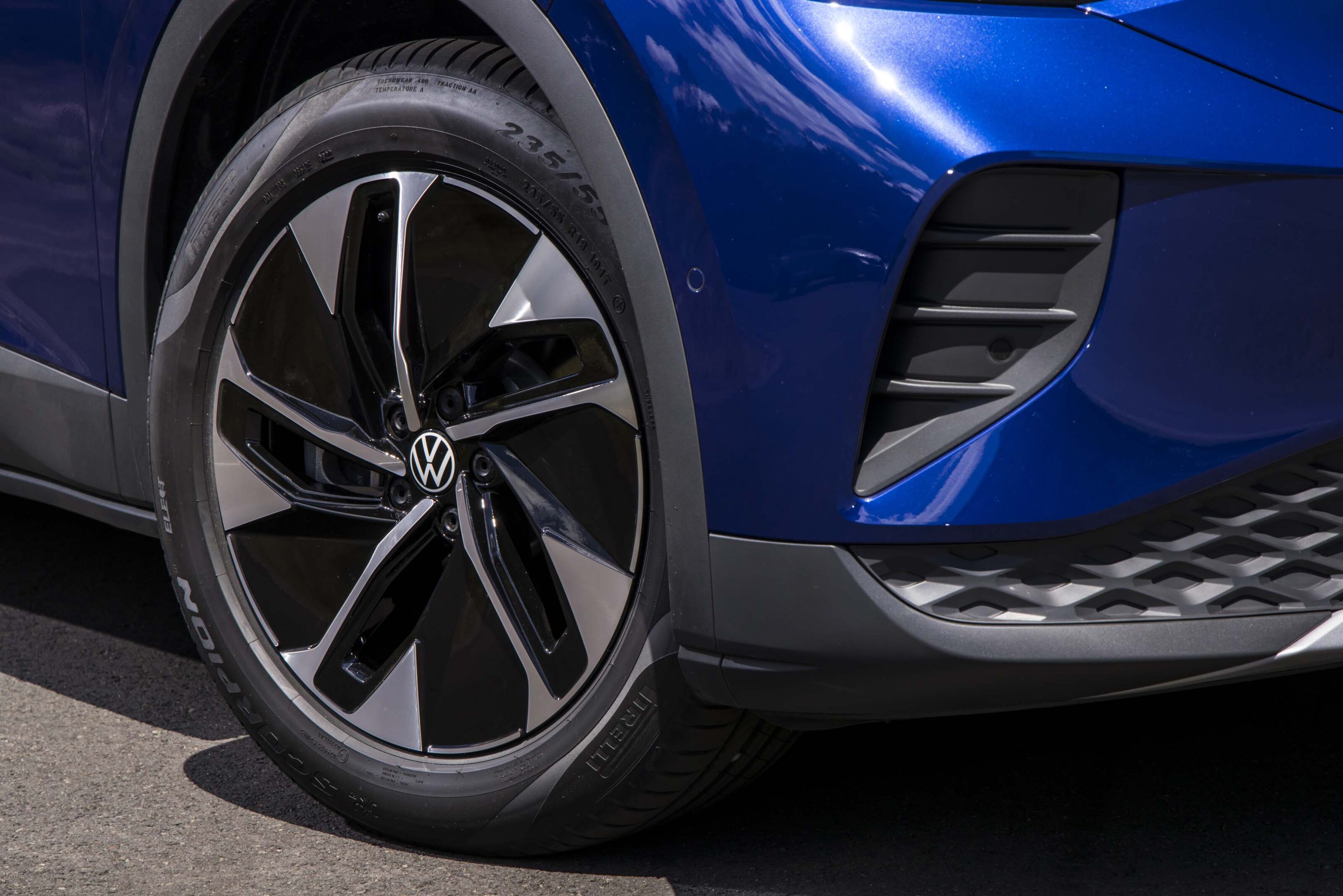
Volkswagen ID.4 against rivals
| Stats | VW ID.4 Pro Performance | Tesla Model Y RWD | Kia EV6 Air RWD | Hyundai Ioniq 5 RWD |
|---|---|---|---|---|
| Price (before on-road costs) | ~$60,000 | $72,300 | $67,990 | $72,000 |
| Battery size | 77kWh | 57.5kWh (estimated) | 77.4kWh | 72.6kWh |
| WLTP Range | 522km | 455km | 528km | 451km |
| 10-80% fast-charge (DC) | 33 minutes (125kW) | 25 min (170kW, estimated) | 18 minutes (200kW+) | 18 minutes (200kW+) |
| Power | 150kW | Not stated | 168kW | 168kW |
| Torque | 310Nm | Not stated | 350Nm | 350Nm |
How safe is it?
The Volkswagen ID.4 was awarded five stars in European NCAP safety testing in 2021.
Volkswagen Australia says it will not compromise on safety equipment for our market, and that the ID.4 Pure Performance is the minimum spec it would consider importing.
The Pure Performance has forward auto emergency braking (AEB) with pedestrian, cyclist, junction and motorcycle detection, as well as reverse AEB, rear cross-traffic alert, blind-spot monitoring, lane-keep assist and adaptive cruise control. There are also eight airbags, including a centre item.
Adding to that specification, the Pro Performance – indicative of the private buyer’s choice – is equipped with Volkswagen’s Level 2 autonomous driving suite, called Travel Assist, which offers more advanced adaptive cruise control and lane-trace assist with touch capacitive steering wheel controls.
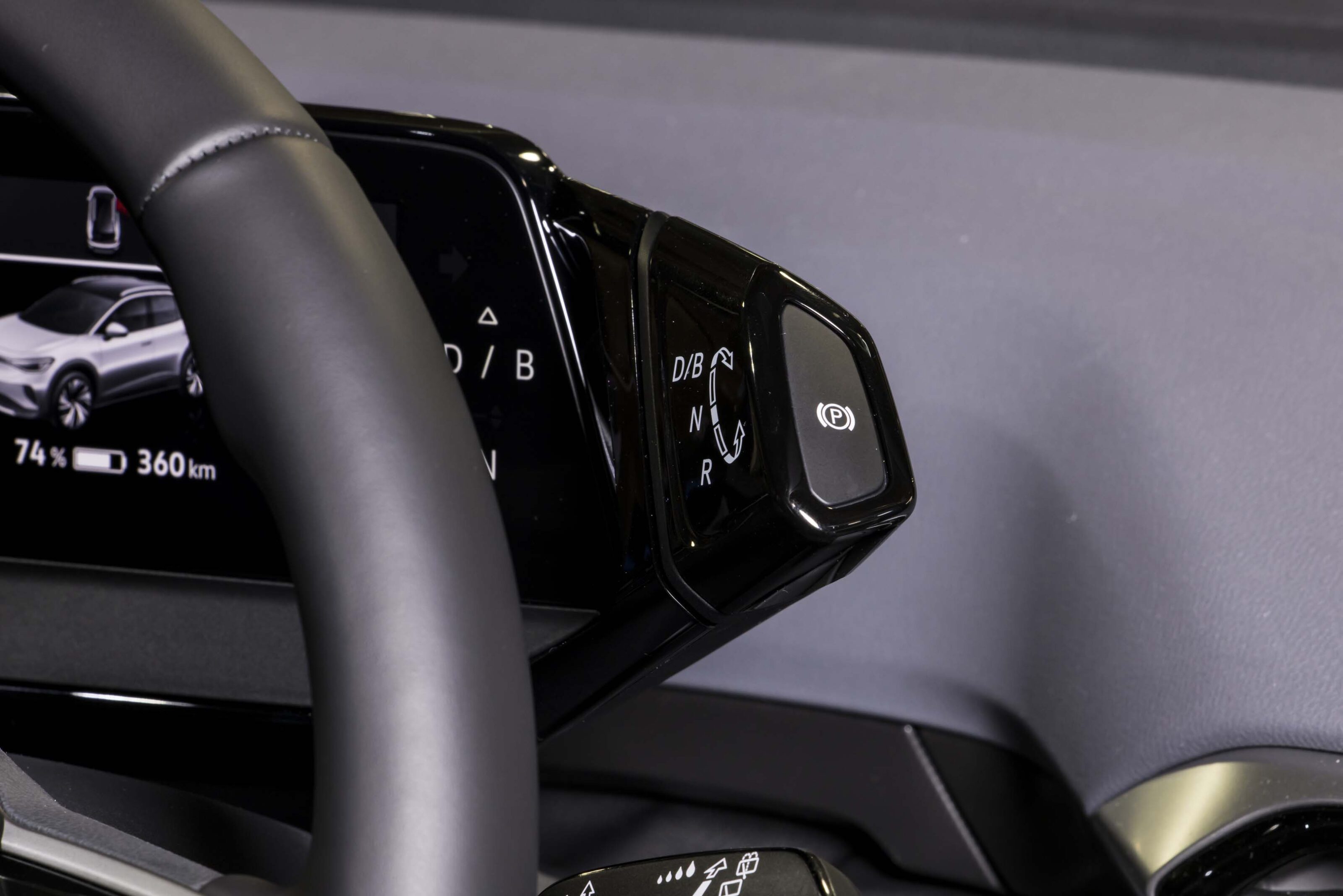
Warranty and running costs
Servicing and warranty are yet to be locked in for Australia ID.4s. However, Volkswagen did say it was almost certain to back the car with the same five-year, unlimited-kilometre warranty as the rest of its passenger car range.
The battery supplier is understood to cover high-voltage parts for eight years or 160,000km.
Maintenance plans will be worked out in time, but Volkswagen indicated it is considering a similar two-year interval without a kilometre limit as offered in the UK.
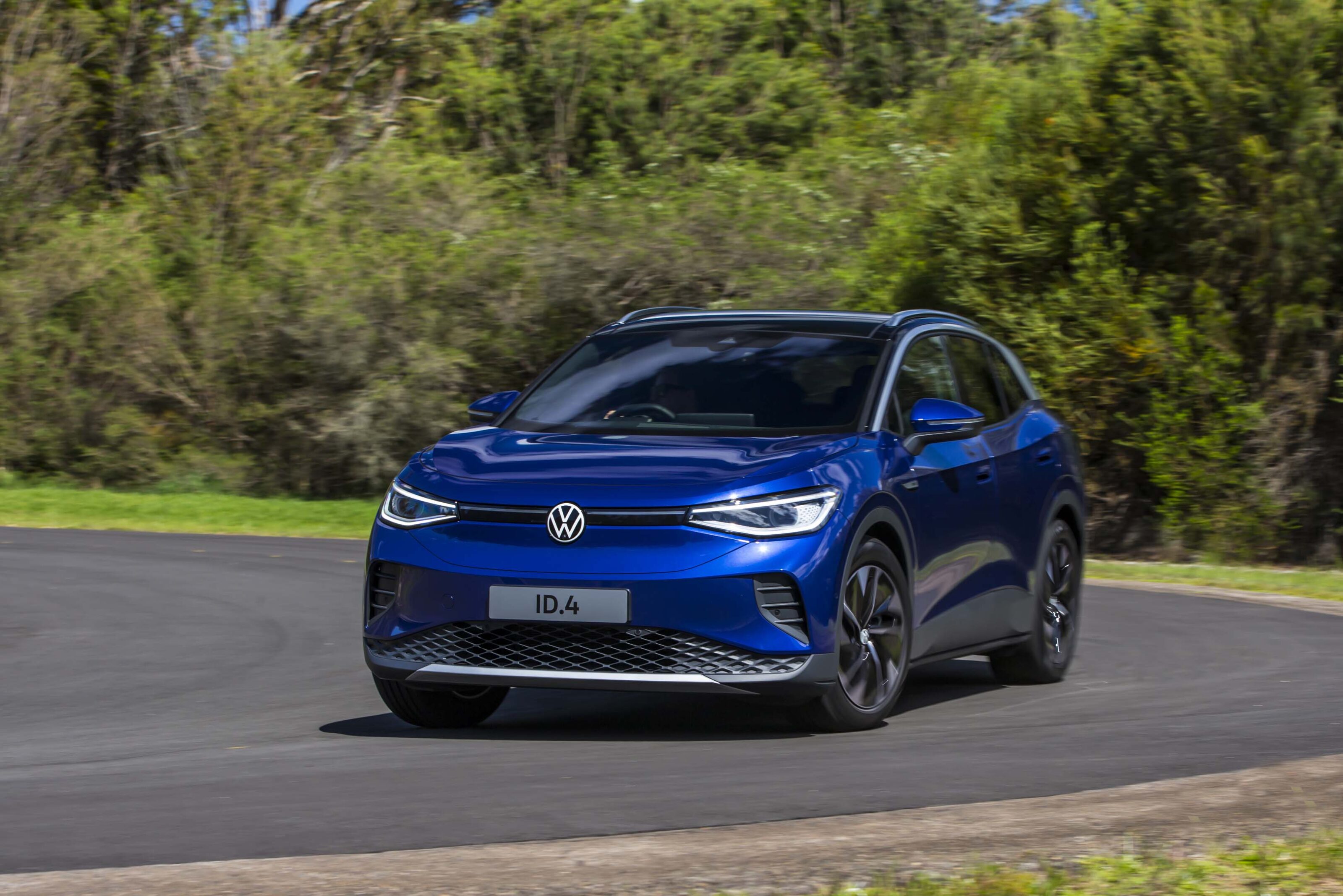
VERDICT
If the Tesla Model Y challenges your perception of cabin technology, then the Volkswagen ID.4 merely shuffles the game along, but that’s no bad thing.
We’ll hold final judgement until we’ve spent more time in the ID.4, but the cabin concept, driving experience and practicalities are likely to tantalise existing Tiguan owners that may feel alienated by the current crop of out-there interiors.
The ID.4 isn’t quick, but initial impressions suggest a smooth and serene drive. Yes, some cabin materials and build quality issues remain, but if Volkswagen can nail the circa-$60K price tag, that may not be such an issue.
Score breakdown
Things we like
- Smooth power delivery
- Spacious interior
- Straightforward technology
Not so much
- No sliding rear bench
- Cheap cabin materials
- Doesn’t move the game on
We recommend
-
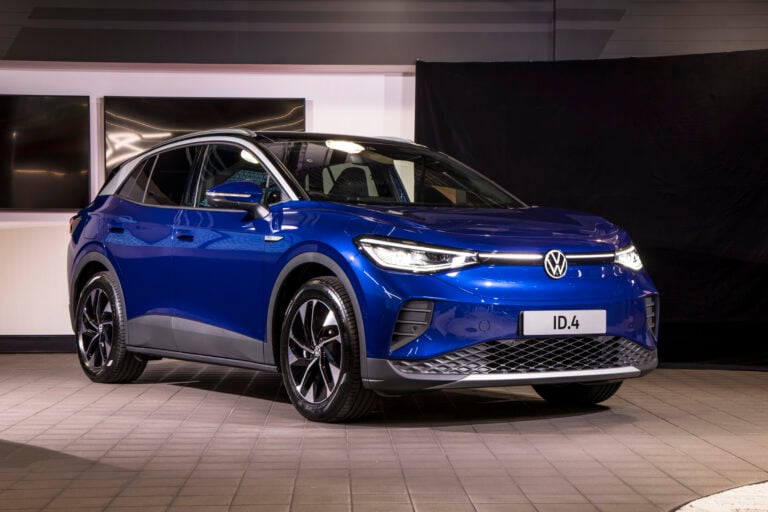 News
NewsVideo: 2023 VW ID.4 will be a Tiguan-priced EV
Volkswagen's ID.4 will be priced close to the popular Tiguan R-Line, and now we've had a chance to look at one in Sydney
-
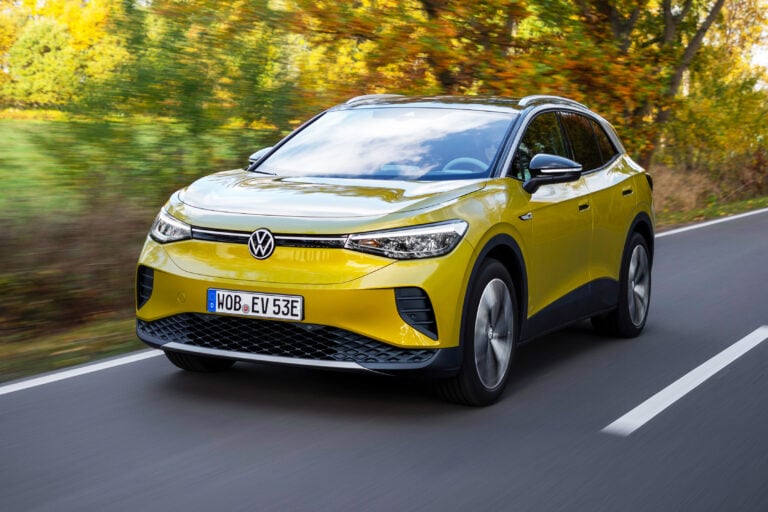 Reviews
ReviewsFirst drive: 2022 Volkswagen ID.4
Volkswagen’s world car for the 21st century
-
 News
NewsNew car calendar 2026: All the new cars coming to Australia next year
Here’s the WhichCar by Wheels guide to all the new cars that will launch in Australia in 2026. Check back in regularly for updates...


